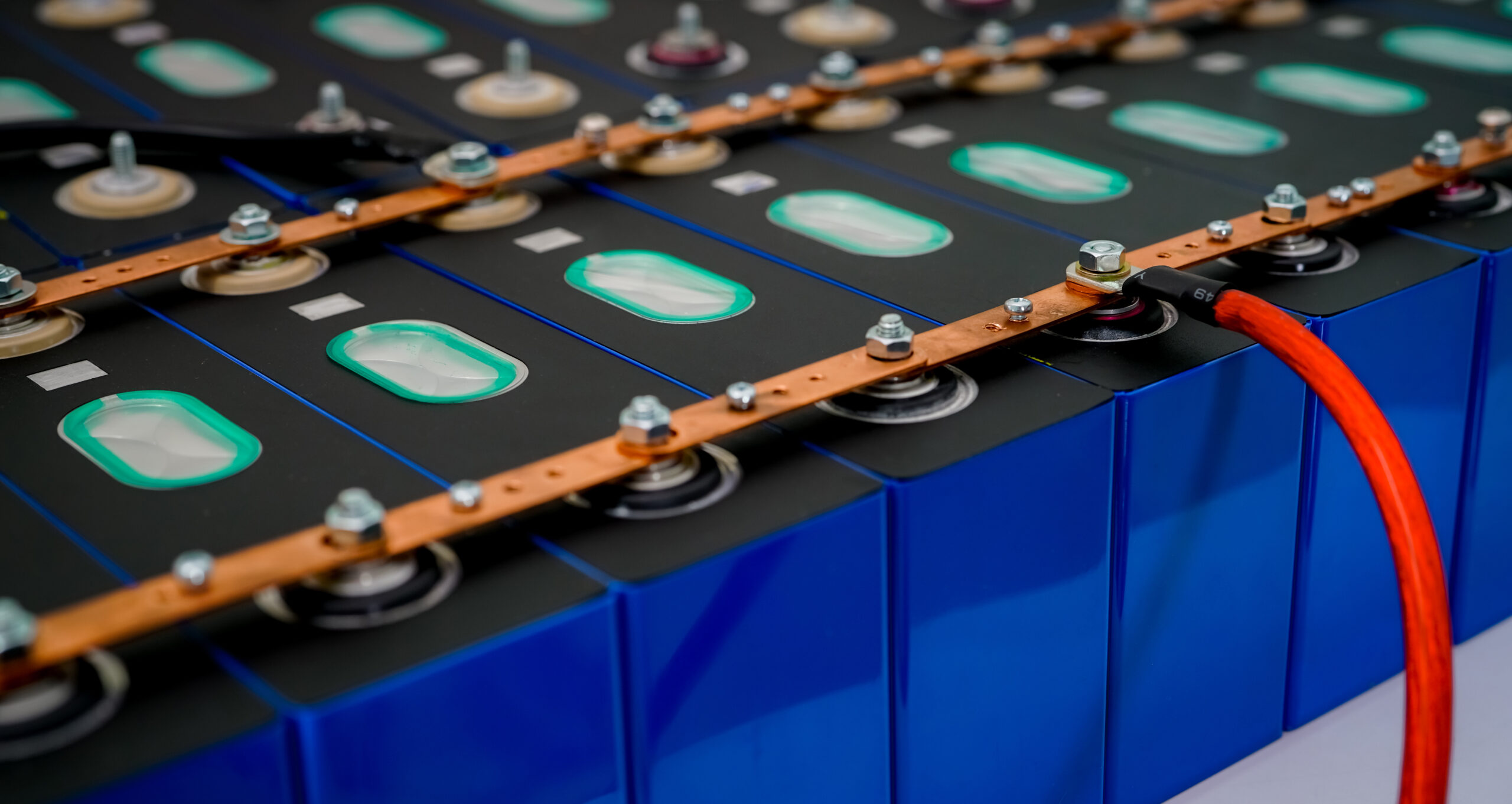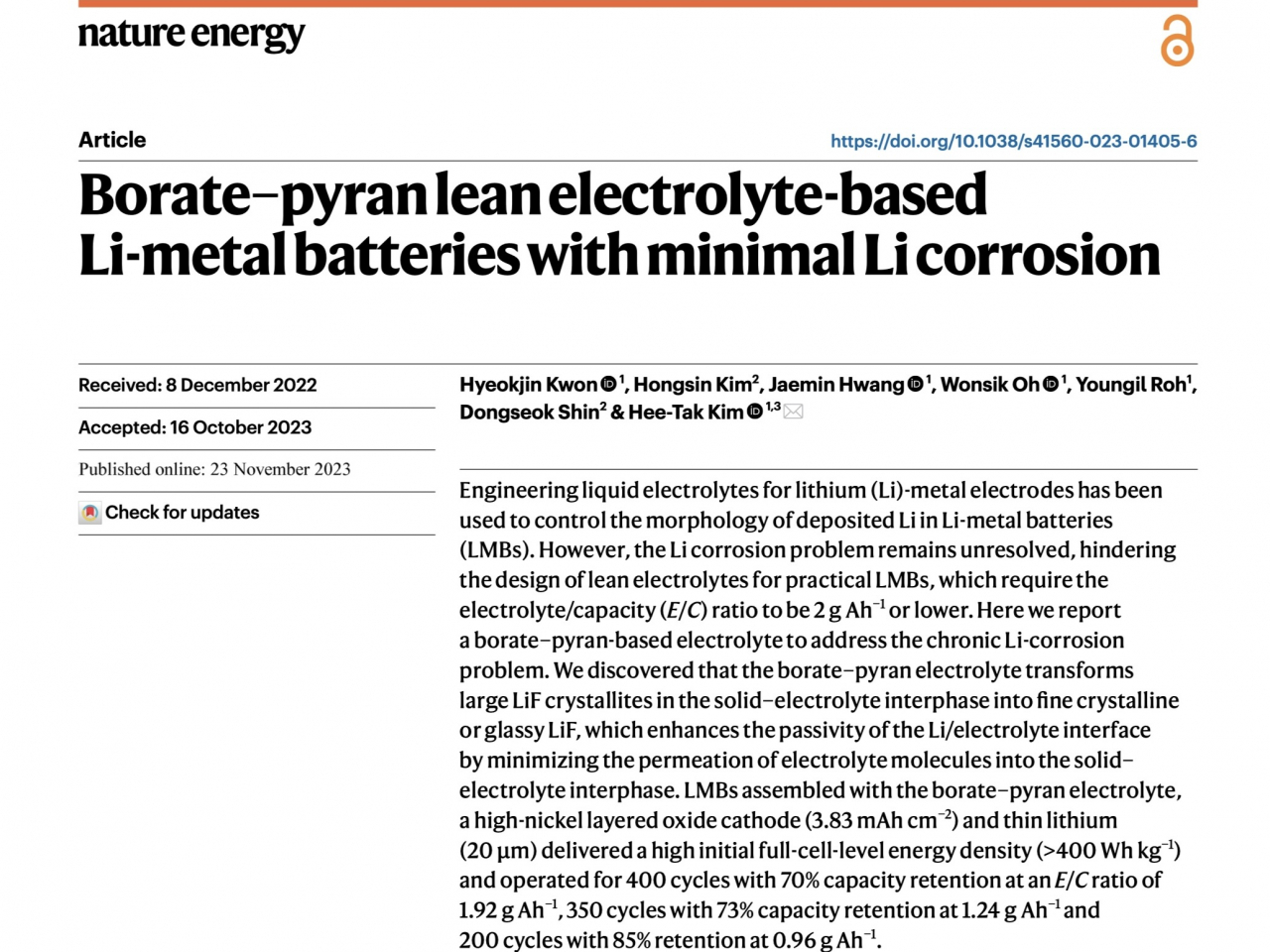
SEOUL (ANN/THE KOREA HERALD) – LG Energy Solutions, in partnership with the top-rated Korea Advanced Institute of Science and Technology (KAIST), has unveiled a groundbreaking advancement in lithium metal battery technology.
Disclosed in the esteemed journal Nature Energy, this research holds the potential to boost electric vehicle range by 50 per cent, while simultaneously enhancing battery efficiency and lifespan.
The collaborative effort, initiated more than two years ago at the Frontier Research Laboratory – a cooperative venture between LG and KAIST – has yielded a pioneering electrolyte technology crucial for connecting the battery’s positive and negative terminals.
This innovative approach effectively addresses the primary shortcomings of lithium metal batteries, overcoming issues such as rapid degradation and reduced lifespan, despite their high energy density.
LG Energy Solutions and KAIST have introduced an innovative solution featuring a unique electrolyte crafted from two chemical compounds – borate and pyran.
This electrolyte undergoes a transformative process on large LiF crystals, a byproduct of battery operation, converting them into smaller crystals or a glass-like state.
This transformation plays a crucial role, as the resulting smaller or glassy LiF forms create a more effective barrier at the electrolyte-lithium interface, acting as a protective shield to mitigate lithium damage.
When implemented in batteries with high-nickel cathodes and thin lithium layers, this cutting-edge technology not only empowers the batteries to store over 400 watt-hours per kilogram of energy but also significantly enhances their durability.
The batteries demonstrate remarkable resilience, enduring up to 400 charge-discharge cycles while retaining an impressive 70 to 85 per cent of their capacity.

This discovery might increase EV ranges dramatically. For instance, LG Energy Solution estimates that the improved lithium metal battery could achieve up to 900 kilometres on a single charge, a 50 per cent increase over the current 600km range offered by existing high-performance lithium-ion batteries.
“Our research overturns previous assumptions, proving that liquid electrolyte lithium metal batteries are not only viable but also highly efficient,” said professor Kim Hee-tak of KAIST’s Department of Chemical and Biomolecular Engineering who supervised the research.
“The breakthrough in controlling the lithium metal cathode interface at the nanoscale was the key to unlocking the full potential of lithium metal batteries,” said doctoral researcher Kwon Hyeok-jin, the first author of the academic paper.
Unlike all-solid-state batteries, another next-generation battery technology, the newly developed liquid electrolyte lithium metal battery operates without the need for high temperatures and pressures, simplifying the battery system design and expanding its potential applications in EVs.
Moreover, the materials used in this new electrolyte – borate and pyran – are relatively inexpensive and abundant compared to those in traditional lithium-ion electrolytes.
An LG Energy Solution official remained cautious about the price benefits at least for now, citing the tricky production and economies of scale in the earlier stage.
The 2023 S&P Global Mobility Survey indicated that nearly half of its 7,500 global respondents view EV prices as prohibitively high, despite a general willingness to accept EV ranges below 480 km.






